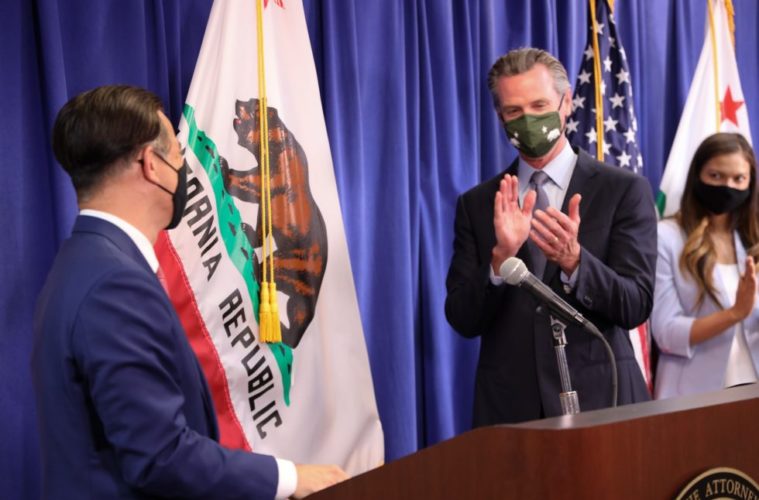On Wednesday, California Attorney General Rob Bonta filed an appeal to the U.S. Court of Appeals for the Ninth Circuit in defense of California’s first-in-the-nation ban on for-profit, private prisons and detention facilities under Assembly Bill 32.
Bonta is urging the court to reconsider a divided appellate decision made by the three-judge panel in early October reversing the trial court’s dismissal of the current challenges against AB 32 by the private prison industry. When Bonta originally authored AB 32 while still a member of the California Assembly, it was intended to protect the health and welfare of prisoners in custody in California.
Those in opposition to private prisons argue that once a bottom line is involved, the quality of rehabilitation and the conditions are impacted by an investor class as opposed to real criminal justice professionals best qualified for the job. Not that those folks have done a perfect job, but once a profit motive is involved, things can really get messy.
So why did the Ninth Circuit decide against AB 32?
In his opinion in October when the Ninth Circuit reversed the previous dismissal of challenges against AB 32 by private prison mega-corporation the Geo Group, judge Kenneth K. Lee noted a few things that complicated AB 32, including the federal government’s sole reliance on private corrections facilities in California to deal with people brought in by ICE enforcement efforts.
“The panel held that AB 32 conflicted with federal law and could not stand,” Lee wrote. “Under the Supremacy Clause, a state law must fall if it stands as an obstacle to the accomplishment and execution of the full purposes and objectives of Congress. Under the presumption against preemption, courts assume that federal law does not supersede the historic police powers of the states unless there is a clear and manifest congressional purpose.”
Despite the court’s actions, Bonta plans to push forward with the effort to close private prisons in California with the support of Governor Gavin Newsom. He announced the state’s latest efforts to get the challenge against AB 32 back in the trash can at a press conference this week.
According to the Attorney General’s office, they had four main takeaways from the court’s opinion. First was it conflicts with precedent established by the U.S. Supreme Court and the Ninth Circuits. Second was the court “erroneously” ruled that federal law preempts AB 32. The state also argues the court’s decision incorrectly concluded that AB 32 discriminates against federal contractors in favor of state and local contractors.
And finally, the state argues the decision made by two out of three members of the Ninth Circuit panel implicates important state sovereign interests. The argument there being states have always had the power to regulate private actors to protect the health and safety of state residents.
“As the lead author of AB 32 in the Assembly, I’m proud to be able to now defend the law on behalf of the people of California as Attorney General,” said Bonta. “The record is clear: For-profit, private prisons and detention facilities that treat people like commodities pose an unacceptable risk to the health and welfare of Californians.”
Bonta went on to note the ultimate goal of AB 32 was to take the financial incentive out of the rehabilitation process.
“AB 32 puts people over profits,” Bonta said. “It is a law of general applicability that recognizes the federal government’s own documented concerns over these facilities. California will continue to press forward to ensure the dignity and rights of everyone in our state are protected. We respectfully ask the Ninth Circuit to let us make our case.”
The governor also weighed in on the effort.
“For too long private prisons have turned a profit at the expense of Californians. This practice does not reflect the values of our state and disproportionately impacts minority and low-income communities,” said Governor Gavin Newsom. “Private prisons do not prioritize the well-being and rehabilitation of those in custody. I am proud that California is leading the effort to eliminate for-profit prisons as we continue to advance best practices to improve public safety throughout our state.”
Advertising disclosure: We may receive compensation for some of the links in our stories. Thank you for supporting LA Weekly and our advertisers.

